Water Heaters
To ensure that your home always has access to hot water, STIEBEL ELTRON offers a range of instant hot water systems, including 3-phase instantaneous hot water heaters, single-phase instantaneous electric water heaters, open-vented compact storage water heaters, and mains-pressure compact storage water heaters. Our 3-phase and mains-pressure heaters are suitable for multiple outlets, while our single-phase and open-vented heaters are designed for smaller point-of-use applications.
If you are unsure which water heater is best for you, our expert team is here to help. We can assist in selecting an electric water heater that best meets the needs of your home, ensuring that you never run out of hot water.
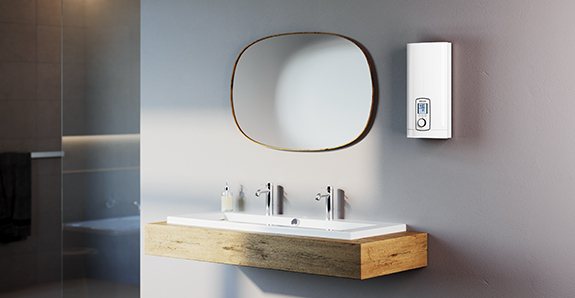
3 Phase Electric Instantaneous Water Heater
- Suitable for multiple outlets
- Never run out of hot water
- Easy installation, no ventilation, safe tray or flue required
- Instantaneous hot water supply
- Energy efficient operation
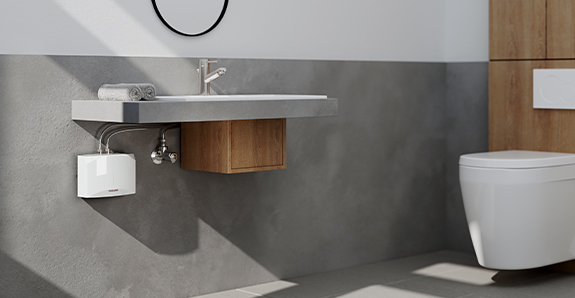
Single Phase Electric Instantaneous Water Heater
- Designed for smaller hot water demands
- Never run out of hot water
- Easy installation, no ventilation, safe tray or flue required
- Instantaneous hot water supply
- Energy efficient operation
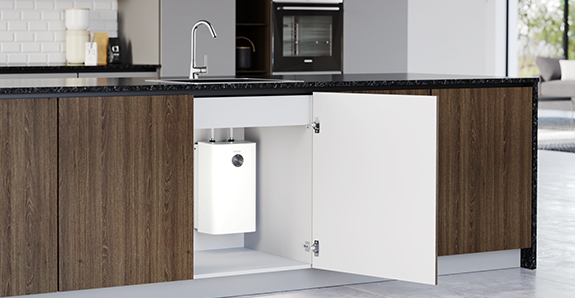
Open Vented Compact Storage Water Heater
- Single point of use
- Open vented design, no ventilation, safe tray or flue required
- Plugs in to standard 240V GPO (10 Amp)
- Ideal for an isolated sink
- No long wait times for hot water to arrive
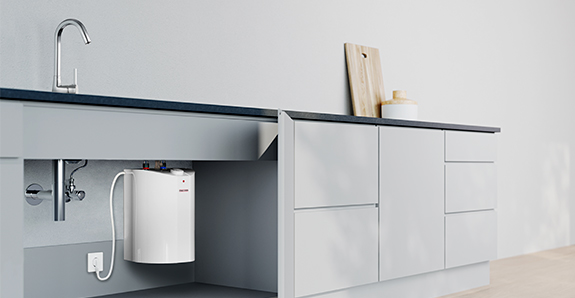
Mains Pressure Compact Storage Water Heater
- Made in Germany with premium quality parts
- Multi-point compact storage water heater
- Under bench installation eliminates dead legs
- Compact design frees up cupboard space
- Insulated design minimises heat loss and maximises energy savings
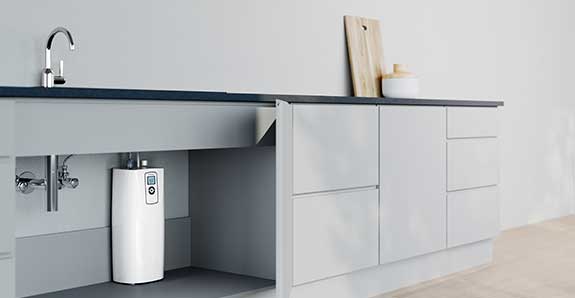
Under Sink Water Boiler
- Instant boiling water availability
- Compact and slim design
- Includes a brushed or chrome mono tap, or upgrade to a Design Kollektion 3-in-1 tap
- Programmable timer for energy savings
- Childproof push & turn mechanism
- High-grade thermal insulation for low energy losses
Discover the Benefits of STIEBEL ELTRON Water Heaters
Modern homes and businesses require efficient, reliable hot water systems. At STIEBEL ELTRON, we are proud to lead the industry with our innovative water heating solutions designed to reduce running costs and enhance energy efficiency. Our range of water heaters is engineered to meet the demands of contemporary living, providing rapid hot water delivery while conserving both energy and water.
Our point-of-use water heaters are designed for compact installation and close proximity to the point of use, ensuring that you receive hot water quickly and efficiently. These units are perfect for residential kitchens and bathrooms, as well as commercial settings where space and efficiency are paramount.
For those seeking a tailored solution, our bespoke instantaneous water heaters are the ideal choice. These units are customised to meet your specific needs and water usage patterns, significantly reducing domestic hot water expenses and maximising energy savings. By harnessing latent energy, our water heaters provide an environmentally friendly and energy-efficient option suitable for both homes and businesses.
Our three-phase instantaneous water heaters are equipped with advanced electronic technology, allowing for precise temperature control and consistent water delivery. These units are particularly well-suited for bathroom use, where maintaining a steady temperature is crucial. Our DEL Plus model, for instance, can deliver water at temperatures up to 50 degrees Celsius, ensuring a comfortable and satisfying experience every time.
In addition to our instantaneous water heaters, we offer a range of compact water heaters designed to meet various needs. Our selection includes instantaneous single-phase electric water heaters, which are perfect for smaller households or specific applications, and compact storage open-vented water heaters, which provide a reliable and efficient solution for hot water storage.
Choosing STIEBEL ELTRON means investing in high-quality, energy-efficient water heating technology that meets the highest standards of performance and reliability. Explore our comprehensive range of water heaters and find the perfect solution to meet your hot water needs.